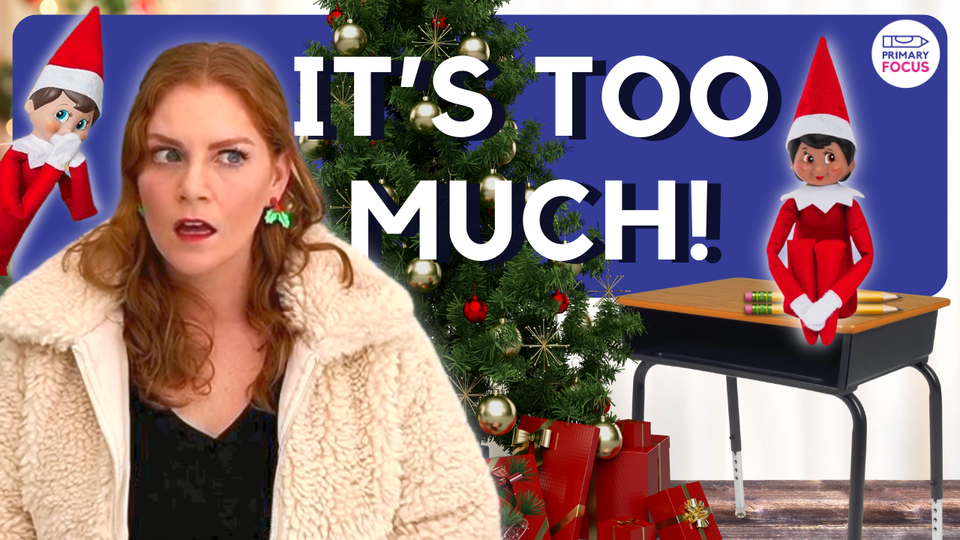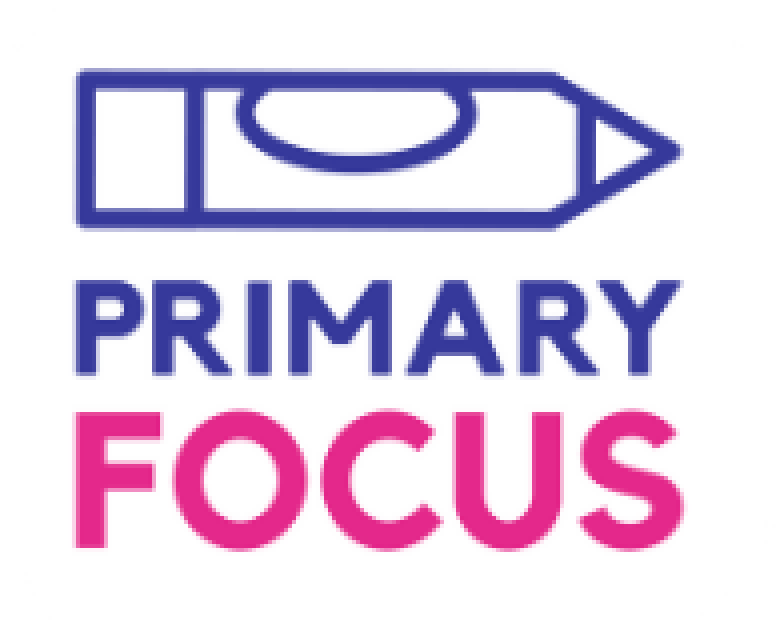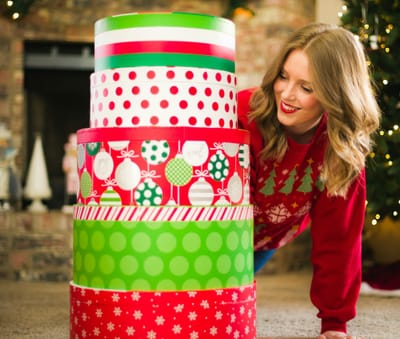
This is video I am most proud of: enjoy
Christmas celebrations get more extravagant and expensive each year. They say it’s all for the kids…but is it? Natalie breaks down traditions from a child development standpoint to help you understand what traditions need to stay and which ones can go.
Thank you to our sponsor, Llama Natural Vitamins.
Get 20% off your order using code: primaryfocus
https://bit.ly/llamanaturals
Yardsticks Child Development for Children aged 4-14 (affiliate): https://amzn.to/4a1fPyy
Sign up for my newsletter: https://newsletter.primaryfocus.tv/
** ** **
Hey, it's Natalie and welcome back to Primary Focus. Before we get started, make sure to like this video.
It seems that the holiday season gets bigger and bigger each year. There's always one more thing to buy, one more new type of decoration and one more new tradition to start.
Now I confess, I do love Christmas time. But even I know that this holiday has started to get out of control.
If you look at a lot of the stories of Christmas, they tell us Christmas is special because a miracle happened. During a difficult time, something a little bit magical, a little bit special happened that made things better.
But if we look at how Christmas is celebrated today, it is not that.
Instead of one magical moment during a quiet, difficult time, it is magical moment after magical moment orchestrated by exhausted adults who don't get to take any credit at all for their work. And this same energy has tumbled into schools across America. From outrageous classroom parties to having Elf on the Shelf in the classroom, teachers are feeling this pressure to take on the magic on top of their normal responsibilities. And not to mention it's controversial to be having Christmas in the classroom.
And when I was teaching in schools, more than anything, Christmas time felt like a show of wealth and resources. In addition to being completely exclusionary to children that do not celebrate Christmas or just have smaller Christmas celebrations.
Now, if you think you're going to hear me rant about no holidays in schools, you're wrong. That's not what this video is about. There is more than enough time to have fun, holidays, and cheer in schools while also separating church and state. I am here to talk to you about how enormous Christmas has gotten, and if you are feeling broke and exhausted from this holiday, how you can pull back from it without the kids even noticing.
So here's what I want to talk about. How childhood magic links to child development to explain why you don't have to work that hard to make magic this time of year.
And also how to make choices for your family traditions and thinking long term about them so that you don't overload yourself. So let's go.
Okay, here we go. I pulled out my favorite textbook from grad school. Honestly, I hesitate to even call this a textbook. I think all parents and teachers should buy it. Yardsticks is a guide to child development from age 4 to 14, broken down really clearly. I've got a link below if you want to get your own copy.
wHat I've learned from reading this book is that childhood magic is a real thing. You know that feeling of wonder that you used to have as a kid that feels so hard to replicate as an adult? Well, kids age 7 and under feel that every single day. after age 7, it doesn't stop. In fact, at age 10, it starts to become a new feeling, nostalgia for their childhood, even though their childhood is still actively happening.
And the farther we are from it as adults, the harder it is to recreate it. There's a reason why so many of these Christmas movies are written about adults trying to reconnect with that magical feeling and believe again. the closest thing we can do to this is all collectively agree to recreate our childhoods every December.
November 1st for the real fans.
and while it may take a large investment of time and money from adults to recreate this magic, children don't need that.
They are experiencing this magic every day with no support at all.
I'm telling you this because if you're spending a ton of money trying to make magic for your kids, you don't need to do it! If all the extra decor and crafts are giving you grief, take a step back Let your kids take the lead on the magic.
I felt this when I was teaching, and in particular when I switched down to kindergarten, which was 5 to 6 year olds. I was prepared to orchestrate all of these crafts and activities for holidays throughout the year, but when I went to go do this, the excitement was already there. I found myself pulling back from doing these activities because my students didn't need anything from me. My students were already excited and energetic, I just needed to referee, I mean facilitate.
A quick note here before I carry on. Christmastime in public schools in the United States will always be controversial. vary widely based on your region, school demographics and religious background. I always taught in the Bible Belt, so the culture of the area I live in pushed Christmas into schools a lot more than other regions in the country.
I was really focused on multicultural education, and in particular, teaching my class about fun holidays and traditions from a variety of my students. For example, we often talked about Diwali, Purim, and New Year celebrations from various countries. I would cater these celebrations to the students represented in my class.
So because of this, letting Christmas into my classroom felt fine. It's also become very secular and around the world we see people celebrating Christmas without religious application.
For example, my students in Vietnam loved Christmas and celebrated it like an over the top Valentine's Day, but upon asking further questions, they didn't know any of the religious background of the holiday. They just understood who Santa was and that he was coming with a big old bag for them.
So even though I spent a lot of time considering how it would work in my classroom, it wasn't my job to stop Christmas time. It was my job to keep a balance. We could let some Christmas cheer in, it's coming in anyway, but also educate students on the background of the holiday And ensure our classroom continued to be welcoming to all.
I knew that my students were getting tons of holiday spirit from TV, home, classmates, other teachers, extracurriculars, and honestly just taking a walk through their neighborhood. I started to let them take the lead on it.
Sure, I had a few Christmas decorations, mostly things that had been gifted to me, but when I did other multicultural holidays, I would also try to decorate for that too. I just managed the holiday fine while making sure that we were also still learning and that we weren't excluding other classmates.
There were times for Christmas and for other holidays that I tried to go all out, but I always ended up stressed and tired. If you want to hear about that, you can watch my video about throwing the perfect class party.
If you're feeling guilty about pulling back from Christmas, don't. You can do this too. Let the kids dream about holiday magic and just supplement as needed.
If you're with me so far, like and subscribe to this channel. You can also sign up for my newsletter, where I dive deeper into child development and tips to help your kids thrive in school.
Following your child's lead takes me into my next point about making choices for traditions and thinking long term so that you don't accidentally overload yourself years down the line.
That makes me think of one new Christmas tradition that I am very skeptical of. What I found out is that Santa has sent out a fleet of elves to sit on shelves. I just don't know about that.
Elf on the Shelf is the name of a type of elf that comes into your home every December to surveil your child's every move and report back to Santa. The elf only moves at night or when people are not at home, they have been known to cause mischief at night.
Elves have been reportedly found spilling flour everywhere, hanging from ceiling fans, and destroying your bathroom. Listen, I'm not getting into this whole thing. I could have former students watching. But, if you don't know what I'm talking about, look this up and see how the elf acts in some people's homes.
Even though Santa is supporting families through this tradition, it is impossibly hard to keep up with. Not just day after day, but year after year. And my followers agreed too. I put out a poll on my Instagram and on my YouTube, and resoundingly people answered that they are not participating in Elf on the Shelf.
My first big concern is seeing teachers participate in the Elf on the Shelf program. Elves have been sent out to kindergarten and first grade classrooms around the country. I know people that personally applied to the Elf on the Shelf program to get an elf in their school. Hi guys, I'm sorry, I'm not trying to rag on you, but we just don't know what's happening at home. We shouldn't get in the way of a family's traditions. Schools, even though we are well intentioned, often put a lot of extra pressure on families, adding the pressure of changing or putting more family traditions on at home is, can just be a lot, especially if Christmas is a difficult time for you.
And for me, as a teacher, I could not handle the chaos and the hype that the kids had walking in and seeing what had happened with this elf every single morning in December. They are already, whew, up here in December, and to add into that just felt like way too much for me. It's just also a huge commitment.
I did have a colleague once, she had a family emergency in December. She had to leave school for a few days very suddenly with no planning. So not only did she have to work to get emergency substitute teacher plans in, but she had to get somebody at the school to feed the elf.
So not only did she have to write up emergency subplans, she had to get somebody at the school to Feed the elf.
That's my teacher rant, but getting into child development here, delayed gratification and patience are a really, really important part of a child's development. we are already struggling as a society with the amount of screen time and the types of games and TV shows that children have access to today. Attention spans are low and there are not a lot of opportunities to teach kids how to wait..
Christmas, with its 25 day countdown, is a perfect time to teach managing expectations, excitement, and your emotions. But making every single morning Christmas morning doesn't really help with that.
Now, when it comes to traditions, whether they're new or old, we can get really attached to them. And why shouldn't we? It's really special that despite everything going on in the world, all the changes people go through, that we can experience the same thing every year.
There's something kind of sacred about traditions. But the thing is, we change every year, so in a way, traditions will never be the same. And in that spirit, I think we should leave room to be flexible with traditions. Traditions start because we like what we're doing or it makes sense to be doing it that way. But if you don't like it anymore or worse, it doesn't make sense and you're continuing to do it, there needs to be room for change and growth.
Now, believe me, that is easier said than done, and I know I gave my mom a ton of grief about traditions growing up.
It's really hard to change something when it's been passed to you and you've been told it will never change. I think a lot of families are trapped with traditions that they don't like or don't make sense to do anymore, but everyone's just doing it because it's too difficult to have the conversation about the change.
It can be really hard to get larger families to change from traditions. So when it comes to your own unit, consider this. What about preparing children for traditions using different language? Instead of saying, we always do this, or we have to do this. Have a family discussion before the holiday, asking kids what they would like to do this holiday.
Give them the language of saying, I'd like to do this again and asking the question, would you like to do that again? This opens up room for discussion of what actually makes sense and what we enjoy.
You're the parent, so you can still ultimately curate this holiday, but I think it's helpful to have discussions like this before you're running into issues with traditions. Even if everything feels really good right now, there are going to be years where it feels difficult to make a tradition happen, or you might even have a Christmas where you are dealing with something that is more important than Christmas.
Giving this concept of traditions are important and we try to do them every year but we're flexible can make it a lot easier on your child when that year comes that it is harder to fulfill certain traditions.
I think about when I was in 6th grade, which is at the point of child development where you do start to feel more nostalgic. We'd had a death in my family shortly before Christmas, and my father was just coming home from deployment. I can only imagine how difficult things were for my mom that year, dealing with all of these different things.
As an adult, I look back on that Christmas, and I remember having a fit about certain traditions going away, I almost felt superstitious about traditions. I felt like if we weren't doing them, something bad would happen, or this meant the beginning of the end of something.
Now, I'm not blaming my parents on this, because everybody speaks in a very rigid way about traditions.
It feels like we have to do these things no matter what. I'm sure everybody knows someone in their family, maybe even you, that's had a fit about a tradition going away. But if we can help kids have a little more flexibility with tradition, it actually connects back with a lot of the values we're seeing in parenting in schools today. Teaching about social emotional intelligence and growth, teaching about flexibility, teaching about boundaries, and if we can even see some of the most special, sacred things in our life have room to grow and evolve, that means that we have room as people to do that too.
And for what it's worth, I think there's something special about skipping a tradition and then returning to it the next year. It speaks to how important it actually was to your family. If you go ahead and break a tradition, it may be a lesson in self care and priorities as well.
And, if your kids are giving you grief about this, which they will, it could also be a chance for your kids to step up and help out.
If they want something so bad, maybe they can make the tradition happen.
The thing is, children are changing physically and emotionally all the time, so on some level, they are more adaptable to change than adults. but on that same note, they are also fatigued by all the change they are constantly going through.
The comfort of pretending you're little again, even though we still think that they're little, is nice. I think a discussion about holiday decisions can help find a balance with what to do. And you may get to know your child better along the way.
So what do you think? Has Christmas gone over the top? Are there any traditions that you would like to drop? Leave a comment below. Thanks for watching Primary Focus. My name's Natalie. See you next time.
The Primary Focus newsletter shares the clarity, language, and support every parent needs to feel confident - right in your inbox.






